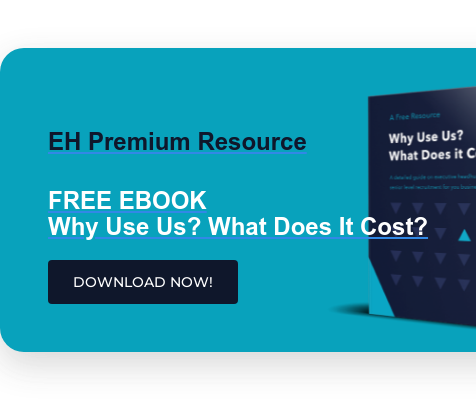Hiring for senior positions such as a HR Director can be stressful and time-consuming. Given the critical importance of a HR Director to the success of your business, it's vital to ensure you ascertain the best possible person by asking the right interview questions.
So, you’re in need of a new HR Director. You’ve done some talent searching, shortlisted some candidates, and now it’s time for the essential interview process. But before you jump right into conducting your interviews, think about what the right questions to ask are.
If you as an interviewer don’t give thorough and detailed consideration to what questions going to ask your candidates, you could be wasting a valuable opportunity. In order to give you a head start on this process, we have provided 20 questions that we believe will successfully get you the information that you need to know out of your candidates to help you easily identify your next HR Director.
1. How Important is Workplace Culture to You?

One of the responsibilities taken on by your candidate will likely be to observe and maintain your desired workplace culture and environment. It can be a huge advantage if your candidate demonstrates a good understanding of different workplace cultures, as well as the environment of your business, and is able to adjust to this, as well as ensure that any future hires are able to do the same. By asking them about the importance of workplace culture, you can start to get an idea of how they will go about engaging employees in the workplace, if at all.
You need to have an understanding of your work environment, and what you should reasonably expect from your candidate.
2. How Do You Deal with Discrepancies Between Employees?
One of the essential responsibilities for a HR Director is an ability to deal with and resolve any and all discrepancies between employees. This may be anything from workplace disagreements, to compensation issues, to employee tension and inappropriate behaviour. Your director should be able to maintain a thorough understanding of company policies and workplace etiquette, so that they can identify issues before they worsen. Ask the candidates about their process for dealing with such issues, how they identify them, and how they proceed in resolve them.
3. What Motivates You?
An essential question to ask employees for any job. Motivation levels in a worker is what divides someone who will push themselves to excel and someone who will be content with the minimum standard. This is hugely important in leadership positions - after all, how can you expect your employees to be motivated to work if their leaders aren’t visibly motivated?
Furthermore, encouraging and maintaining employee motivation is one of the key duties of a HR Director, so you need to be sure that your candidate recognises how they can drive their own motivation before they can do the same for others.
4. What is Your Favourite Part of Your Job in HR?
There’s no shame in openly having favourite and least favourite aspects of any job, in fact it’s actually preferable if your candidate can clearly and passionately discuss their favourite aspect of their job in HR. This is because having a clear favourite aspect shows passion for at least some aspects of the job. This may indicate which aspects of the role your candidate will excel at, or at least show more motivation when carrying out.
5. What is Your Least Favourite Aspect of Your Job in HR? How Do You Deal with This?
You want your candidates to be as honest as possible, and by asking this allowing them an opportunity to be honest with you. Everybody has a least favourite aspect of their jobs, it’s only natural, and you shouldn’t expect any different from your candidates. By asking them how they deal with this aspect, you give the candidate an opportunity to show you their ability or willingness to productively handle the worst aspects of their job, which indicates how they might do the same in your role.
6. What is Your Proudest Achievement in HR?

As we know, there’s nothing wrong with having pride in your work. Especially when it comes to the people-focused role of HR Director, it’s always good to feel a sense of pride when performing your duties. Asking about the candidate’s most proud achievement provides you with insight into their values and standards, and gives them a chance to impress you with their achievements and contributions in their current role. This can help you form a tangible set of expectations for the candidate you chose to employ. If your candidate seems hesitant to show overconfidence or ‘brag’, you may wish to offer an example of a personal achievement, though you should also be wary of undermining your candidate.
Remember you want to promote confidence and encourage your candidate to open up.
7. What is Your Biggest Contribution to Your Company?
This is a good question to lead into after the previous one. A good candidate is always confident in their own abilities. Your ideal candidate needs to understand their skills and ability to contribute to your business, and so encouraging them to name the biggest contribution or change they made in their current or previous role is a great way of measuring their understanding of themselves and what positive effects their actions have. If you wish you may choose to phrase this question along the lines of “Do you think that (your proudest achievement) is your biggest contribution to your company? If not, then what would you say is?” as this can encourage them to think assess their own personal sense of pride and satisfaction against their overall contribution from an outside perspective.
8. How Do You Deal with Negative Feedback or Criticism?
An HR Director requires the ability to take negative feedback and criticism in their stride. Ask the candidate how they react and what actions they take when they encounter criticism in the workplace. This can also lead into questioning them on how they go about distributing negative feedback, why they choose to operate in such a way, and how they handle the response. This is a key attribute of this position which reflects not only on themselves, but also their understanding of other employees.
9. What is Your Favourite and Least Favourite Type of Person to Work With?
This can be a tricky question for candidates applying for the role of a HR Director. It’s no secret that sometimes, certain types of employees are just harder to work with than others, whilst some types of employees work together well. It’s only natural for people to feel this way, but in HR, it’s important to have the ability to be diplomatic and avoid any possible bias or discrimination.
10. What Attracts You to this Industry Above Others?
When you’re conducting the recruitment process, you’ll want to know your candidate’s level of passion or interest in your sector. If they have no previous sector experience, you can ask them what they expect from the industry, and why they think that your industry is the right sector for them. This creates an opportunity for the candidate to demonstrate their knowledge of the nuances of your sector as compared to other industries that the candidate has experience in.

11. Describe a Bad Situation that You Resolved in a Professional Manner
This is absolutely vital for almost any HR role. it's essential that individuals in this role have the ability and willingness to tackle bad situations head on in a professional and efficient manner. An ideal leader will have the ability to keep a cool head at all times and maintain a rational and professional thought process and work ethic in the face of bad situations. If you wish, you can expand this question into a form of role-play. For example, you may want to provide a practice situation and ask them to demonstrate how they would go about solving this.
Remember that using role-play can be invaluable for demonstrating your candidate’s abilities.
12. How Important Do You Think Qualifications Are Compared to Experience in HR?
The debate of qualifications vs experience is a long-standing one. Considering the recruitment responsibilities your hire will likely have, the ideal candidate should be able to critically assess the worth of all candidate’s experience and qualifications. This is important to consider not just in the searching process, but also in the interviewing stage when weighing candidates against each other. It’s also possible to tie this into a discussion of the candidate’s own qualifications.
Consider the HR Director qualifications needed to succeed in your company and role.
13. What Do You Think Are the Most Important Skills for a "xxxx" to Have?
Choose an important role within your business and ask the candidate what skills they think this role should have. This question is a good way of measuring your candidate’s understanding of your sector, and the workers within it. By demonstrating knowledge and understanding of what is important in a key role for your business, they are not only showing ability to assess the performance of your current employees, but they are also providing indication of their effectiveness in hiring employees who possess the right skills.
14. Describe Your Abilities and Experience in Managing Multiple Employees or Clients at Once
Multitasking is an essential skill for nearly every role, but multitasking when it comes to multiple clients, customers, and employees is a whole different story. It takes a skilled individual to be able to actively manage a range of people in a consistent and professional manner, and the ability to do this can make or break a Human Resources Director. Experience in any HR role goes hand-in-hand with experience in juggling several different people at once, and as such candidates should be encouraged to outline their ability to do this reliably, providing as many examples as necessary to show sufficient ability in this area.
15. How Would You Like to Be Managed?
This is a good question to ask for any leadership role as not only will this question give you insight into how the candidate likes to work, it also tells you a bit about how they might lead those working under them. Your candidate’s view of how they like to be managed shouldn’t contradict their view of how they like to manage others. If this is the case, this leaves opportunity to prompt the candidate to expand on why this is.
16. What, If Any, Technical Knowledge or Skills Do You Possess?
The ideal answer to this question depends entirely on your business and its needs. Of course, it’s always preferable if the candidate you hire has knowledge of your sector, but the importance of this knowledge and experience varies from company to company. Essentially, the more detailed industry knowledge your candidate has, the more natural a fit they should be for your business. Ask them to provide examples or experiences of how they gained or applied skills in your sector, as this is also a great indicator of the candidate’s ability and willingness to learn and develop skills in your industry.
17. How Important is Company Loyalty in Yourself and Other Employees?

A great way of determining how long you can expect your candidate to stay with your company. Their answer also gives you insight into how they might search for and recruit candidates. Ideally you want to hire someone that values company loyalty, though of course in return you need to provide reason for them to be loyal! This is an opportunity to run through any company benefits or incentives that encourage company loyalty. It’s also a good opportunity to segue into the next question.
18. Would You Mind Telling Us Why Are You Looking to Leave Your Current Role / Why Currently Out of Work?
This can give you useful insight into how your candidate views their current role, and why they view it in that way. Their answer can give you an idea of how the candidate judges and measures employer quality, and tells you what they value in an employer. They may be looking for a job that offers a better work life balance, or want a new challenge. It goes without saying that you should ask your candidate why they are currently unemployed if applicable.
The last thing you want is to hire a new HR Director only to find out that they left their last job because of poor leadership skills!
19. Have You Ever Encountered Discriminatory Behaviour? If So, How Did You Deal with This?

A HR Director should promote equality and avoid discrimination at all times. They should be wary of discrimination, and be able to identify any form of it in the workplace, be it from employees or clients and customers. Ask your candidate to give examples of times that they have identified discrimination in the workplace, and what actions they took to deal with this. You want their answers to be in line with your company ethos, and an ideal leader would never be afraid to take action in such a situation. If the candidate claims to have never witnessed any discrimination, inquire as to why they think this is. It’s useful to identify how observant your candidate is.
You can also lead into a discussion about equal opportunities in the workplace. You should be able to trust your new hire to promote equal opportunity at all times, not just amongst current employees, but also when recruiting new hires. This is also important if the position includes managing salaries and bonuses, as it's vital to ensure that all your employees are being treated to fair compensation.
20. What Questions Do You Have For Us?
Of course, good candidates will usually have at least a couple of questions to ask you, either about the role, or the company in general. This is always the best way to close out an interview, as it ensures all bases have been covered. It also gives your candidate an opportunity to show genuine interest in your company. You may consider asking what questions the candidate has rather than whether the candidate has any questions. This creates an expectancy that they should have questions and forces the candidate to think on their feet if they don’t have any questions prepared, which may be the case if your interview process was very thorough!
With these questions you should have a good idea of what to ask your candidates that will challenge them and clarify who your perfect future HR Director is.
Remember, however, that this list is by no means exhaustive, and the exact questions you ask and format you utilise should be tailored to the needs of yourself and your company.


